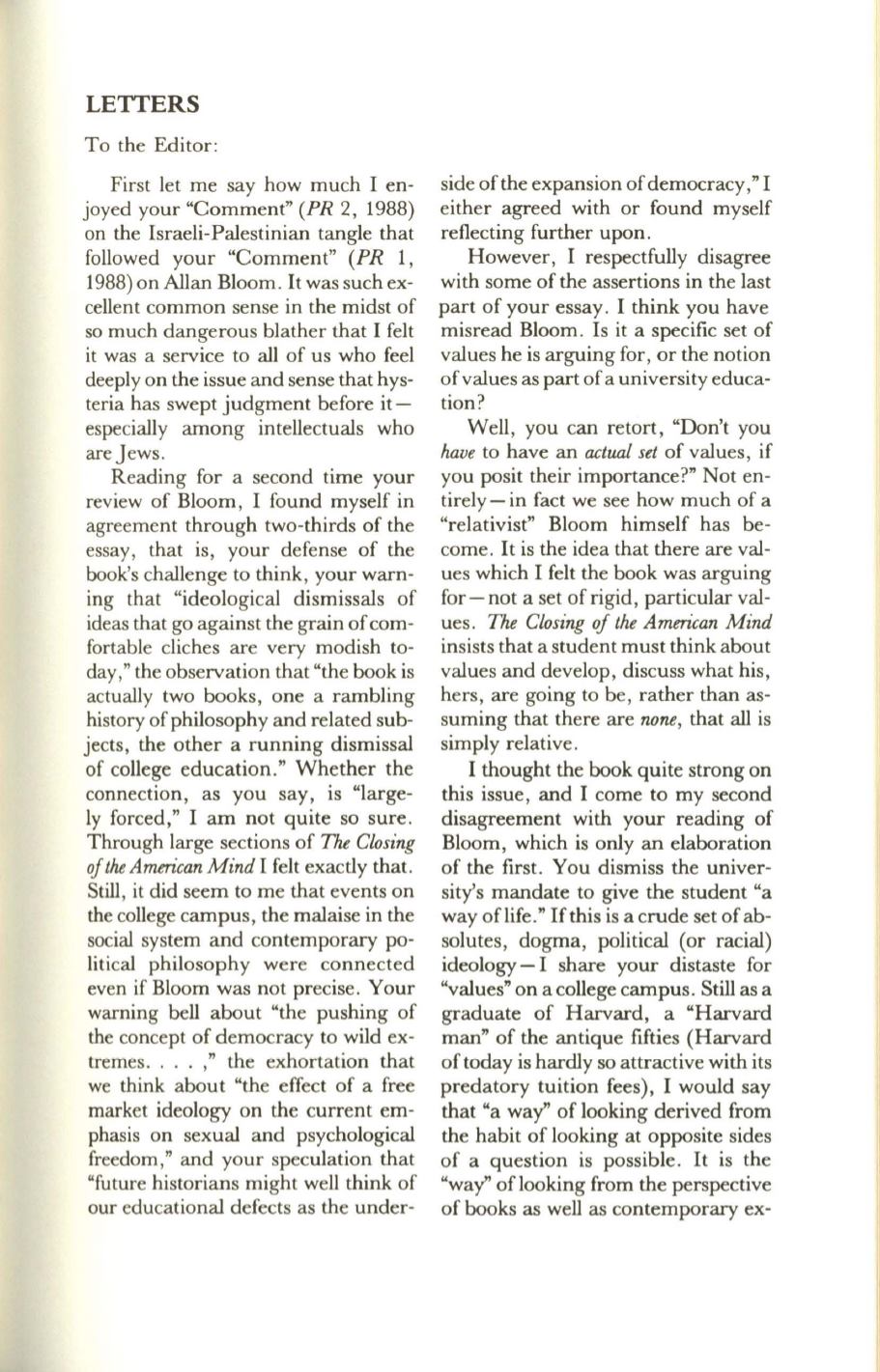
LEITERS
To the Editor:
First let me say how much I en–
joyed your "Comment"
(PR
2, 1988)
on the Israeli-Palestinian tangle that
followed your "Comment"
(PR
1,
1988) on Allan Bloom .
It
was such ex–
cellent common sense in the midst of
so much dangerous blather that I felt
it was a service to all of us who feel
deeply on the issue and sense that hys–
teria has swept judgment before it–
especially among intellectuals who
are Jews.
Reading for a second time your
review of Bloom, I found myself in
agreement through two-thirds of the
essay , that is, your defense of the
book's challenge to think, your warn–
ing that "ideological dismissals of
ideas that go against the grain ofcom–
fortable cliches are very modish to–
day," the observation that "the book is
actually two books, one a rambling
history of philosophy and related sub–
jects, the other a running dismissal
of college education." Whether the
connection, as you say, is "large–
ly forced," I am not quite so sure.
Through large sections of
The Closing
of
the
American Mind
I felt exactly that.
Still, it did seem to me that events on
the college campus, the malaise in the
social system and contemporary po–
litical philosophy were connected
even if Bloom was not precise. Your
warning bell about "the pushing of
the concept of democracy to wild ex–
tremes.... ," the exhortation that
we think about "the effect of a free
market ideology on the current em–
phasis on sexual and psychological
freedom," and your speculation that
"future historians might well think of
our educational defects as the under-
side of the expansion ofdemocracy," I
either agreed with or found myself
reflecting further upon.
However, I respectfully disagree
with some of the assertions in the last
part of your essay . I think you have
misread Bloom. Is it a specific set of
values he is arguing for, or the notion
of values as part ofa university educa–
tion?
Well, you can retort, "Don't you
have
to have an
actual set
of values, if
you posit their importance?" Not en–
tirely - in fact we see how much of a
"relativist" Bloom himself has be–
come. It is the idea that there are val–
ues which I felt the book was arguing
for-not a set of rigid, particular val–
ues.
The Closing of the American Mind
insists that a student must think about
values and develop, discuss what his,
hers, are going to be, rather than as–
suming that there are
none,
that
all
is
simply relative.
I thought the book quite strong on
this issue, and I come to my second
disagreement with your reading of
Bloom, which is only an elaboration
of the first. You dismiss the univer–
sity's mandate to give the student "a
way oflife."
If
this is a crude set of ab–
solutes, dogma, political (or racial)
ideology - I share your distaste for
"values" on a college campus . Still as a
graduate of Harvard, a "Harvard
man" of the antique fifties (Harvard
of today is hardly so attractive with its
predatory tuition fees), I would say
that "a way" of looking derived from
the habit of looking at opposite sides
of a question is possible .
It
is the
"way" of looking from the perspective
of books as well as contemporary ex-


